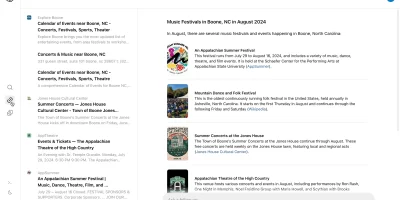Update: 8th of January 2024
A Spokesperson for Duolingo reached out to Phandroid.com for comment on the layoffs. Insisting that these were not layoffs, but scheduled endings to contracts.
I can confirm that some Duolingo contractors were offboarded as their projects wrapped up at the end of 2023. These are not layoffs. This affected a small minority of Duolingo’s contractors, the majority have been retained.
In regards to the use of AI on the platform, the spokesperson had this to say.
While we do use AI for many different purposes at Duolingo, including the generation of some course content (read more about that here), human experts are still very involved in the creation of Duolingo’s content.
Original Article
Popular language learning app Duolingo has been revealed by Reddit user No_Comb_4582 to have laid off a lot of staff over the New Year in favour of AI translations.
This comes just after the latest wave of layoffs and ethical concerns surrounding AI in recent weeks. While on the surface, this move towards AI translations feels like a bit of non-news. There is a bit more to it than that.
Big layoff at Duolingo
byu/No_Comb_4582 induolingo
What is Duolingo?
Duolingo provides free language courses and is accessible through its website and mobile applications. It’s available for iOS and Android. It was created in 2011 and has made a name for itself in its excellence in language learning. It created Duolingo Research where it has been applying all of this learning to the wider research community.
All of this has been built by a group of very dedicated people who love the languages that they work in. However, it seems like a lot of this has now been lost in favour of AI-generated translations.
The Dangers of AI Translations
Comment
byu/No_Comb_4582 from discussion
induolingo
While
AI-powered translation systems have made significant advancements and offer many benefits, there are also potential dangers and limitations associated with relying solely on them.
Loss of Nuance and Context
AI translation systems may struggle to capture the subtle nuances, cultural references, or context-specific meanings present in human languages. This can result in inaccurate or inappropriate translations. Especially in content that requires an understanding of cultural and contextual factors.
Lack of Creativity
Human translators often employ creativity and intuition to convey the intended message effectively.
AI is rule-based, so it cannot produce creative translations.
Idiomatic Challenges
Idiomatic expressions and colloquialisms pose challenges for
AI translation. Literal translations of idioms will lead to confusion or just nonsense. This is because there is figurative meaning embedded in these expressions. Which AI is unlikely to be able to convey at this stage.
Inability to Handle Complex Texts
Specialized terminology, jargon, or complex concepts can be inaccurately translated. As it requires a level of expertise that
AI lack.
Ethical Concerns
Bias in training data can result in biased translations. If the
AI models are trained on data with inherent biases, they may produce translations that perpetuate stereotypes, cultural insensitivity, or discriminatory language. This raises ethical concerns, especially in sensitive or diplomatic contexts.
Lack of Emotional Intelligence
Human translators can understand and convey the emotional tone of a text, adapting the translation to reflect the intended emotional impact. AI doesn’t have
emotional intelligence. So it can struggle to capture the emotional nuances of a situation. Which will no doubt lead to awkward or inappropriate translations.
Continuous Need for Human Oversight
AI translation systems require continuous human oversight to ensure the quality and accuracy of translations. Without proper supervision, errors may go unnoticed, and the overall
quality of translations may suffer. The fewer people you have overlooking these translations, the more errors that are going to slip by. It’s as simple as fewer people around to do more work.
Limited Language Support
While AI translation systems support numerous languages, they may not cover all
languages or dialects. This limitation can exclude certain linguistic communities, leaving them underserved in terms of accurate translation.
Job Loss
The widespread adoption of AI has concerns for lots of people when it comes to job security, translation
jobs being one of many. While AI can handle routine and repetitive tasks, the human touch is often essential for tasks requiring creativity, empathy, and cultural sensitivity.
While AI translation tools offer efficiency and
accessibility, they need to be used with caution. Not as some capitalist way of people in suits making more money because they can pay people less. Especially in contexts where precision, cultural understanding, and creativity are paramount. Combining the strengths of AI with the expertise of human translators will provide a more balanced and accurate approach to language translation. But it needs to be both if there is going to be any real progression and balance moving forward.











Comments